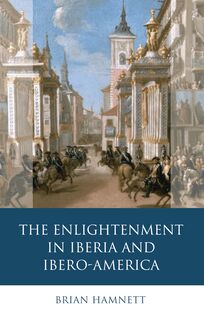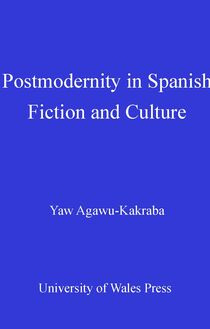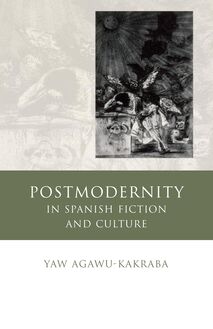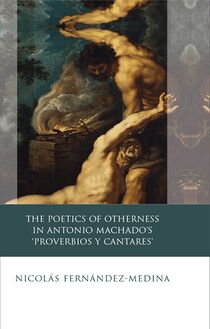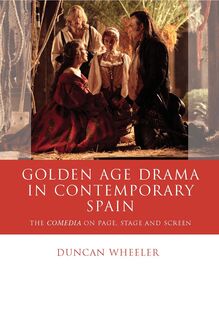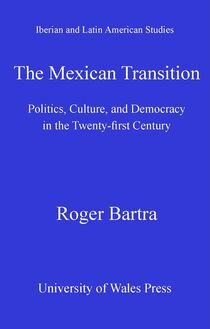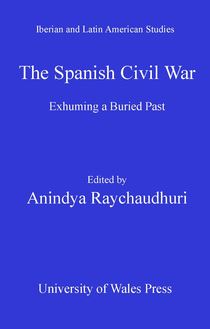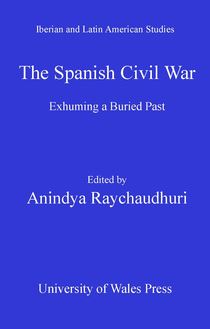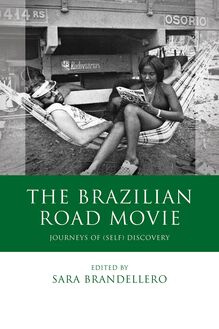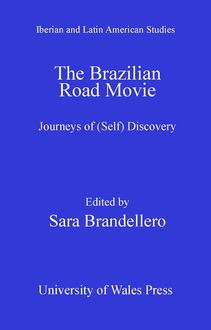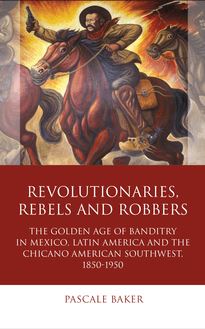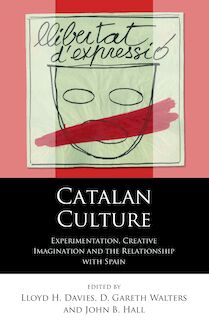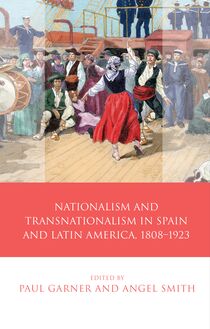-
 Univers
Univers
-
 Ebooks
Ebooks
-
 Livres audio
Livres audio
-
 Presse
Presse
-
 Podcasts
Podcasts
-
 BD
BD
-
 Documents
Documents
-
- Cours
- Révisions
- Ressources pédagogiques
- Sciences de l’éducation
- Manuels scolaires
- Langues
- Travaux de classe
- Annales de BEP
- Etudes supérieures
- Maternelle et primaire
- Fiches de lecture
- Orientation scolaire
- Méthodologie
- Corrigés de devoir
- Annales d’examens et concours
- Annales du bac
- Annales du brevet
- Rapports de stage
La lecture à portée de main
Vous pourrez modifier la taille du texte de cet ouvrage
Découvre YouScribe en t'inscrivant gratuitement
Je m'inscrisDécouvre YouScribe en t'inscrivant gratuitement
Je m'inscrisEn savoir plus
Vous pourrez modifier la taille du texte de cet ouvrage
En savoir plus

Description
Sujets
Informations
| Publié par | University of Wales Press |
| Date de parution | 15 juillet 2012 |
| Nombre de lectures | 0 |
| EAN13 | 9781783165292 |
| Langue | English |
Informations légales : prix de location à la page 0,0950€. Cette information est donnée uniquement à titre indicatif conformément à la législation en vigueur.
Extrait
IBERIAN AND LATIN AMERICAN STUDIES
Remaking Brazil
Series Editors
Professor David George (Swansea University)
Professor Paul Garner (University of Leeds)
Editorial Board
David Frier (University of Leeds)
Lisa Shaw (University of Liverpool)
Gareth Walters (Swansea University)
Rob Stone (Swansea University)
David Gies (University of Virginia)
Catherine Davies (University of Nottingham)
Richard Cleminson (University of Leeds)
Other titles in the series
Barcelona: Visual Culture, Space and Power Edited by Helena Buffery and Carlota Caulfield
From Silver Screen to Spanish Stage: The Humorists of the Madrid Vanguardia and Hollywood Film Stuart Nishan Green
Gald s s Torquemada Novels: Waste and Profit in Late Nineteenth-Century Spain Teresa Fuentes Peris
Killing Carmens: Women s Crime Fiction from Spain Shelley Godsland
Modern Argentine Poetry: Exile, Displacement, Migration Ben Bollig
Catalonia: National Identity and Cultural Policy Kathryn Crameri
Melancholy and Culture: Diseases of the Soul in Golden Age Spain Roger Bartra
The Poetics of Otherness in Antonio Machado s Proverbios y Cantares Nicolas Fernandez-Medina
Shakespeare in Catalan: Translating Imperialism Helena Buffery
The Novels of Jos Saramago: Echoes from the Past, Pathways into the Future David G. Frier
Hermaphroditism, Medical Science and Social Identity in Spain, 1850 - 1960 Richard Cleminson and Francisco V zquez Garcia
Los Invisibles: A History of Male Homosexuality in Spain, 1850-1940 Richard Cleminson and Francisco V zquez Garcia
Projections of Peronism in Argentine Autobiography, Biography and Fiction Lloyd Hughes Davies
Postmodernity in Spanish Fiction and Culture Yaw Agawu-Kakraba
Sex and Society in Early Twentieth Century Spain: Hildegart Rodriguez and the World League for
Sexual Reform Alison Sinclair
Western Sahara: The Refugee Nation Pablo San Mart n
Women in Mexican Folk Art: Of Promises, Betrayals, Monsters and Celebrities Eli Bartra
The Films of El as Querejeta: A Producer of Landscapes Tom Whittaker
IBERIAN AND LATIN AMERICAN STUDIES
Remaking Brazil
Contested National Identities in Contemporary Brazilian Cinema
TATIANA SIGNORELLI HEISE
Tatiana Signorelli Heise, 2012 Cover image: Still from FalaMulher! ( Woman Cries Out! ), documentary film by Graciela Rodriguez and Kika Nicolela (1987).
All rights reserved. No part of this book may be reproduced in any material form (including photocopying or storing it in any medium by electronic means and whether or not transiently or incidentally to some other use of this publication) without the written permission of the copyright owner except in accordance with the provisions of the Copyright, Designs and Patents Act 1988. Applications for the copyright owner s written permission to reproduce any part of this publication should be addressed to The University of Wales Press, 10 Columbus Walk, Brigantine Place, Cardiff CF10 4UP.
www.uwp.co.uk
British Library CIP A catalogue record for this book is available from the British Library.
ISBN 978-0-7083-2509-4 (paperback) 978-0-7083-2508-7 (hardback) e-ISBN 978-1-78316-529-2
The right of Tatiana Signorelli Heise to be identified as author of this work has been asserted in accordance with sections 77, 78 and 79 of the Copyright, Designs and Patents Act 1988.
Contents
Series Editors Foreword
Acknowledgements
Introduction
PART I: Constructions of Brazilian National Identity
Chapter 1. Forging the Nation
Chapter 2. Modernity, Exclusion and Inclusion
Chapter 3. Identity and Hegemony: The Authoritarian State and Nation-Building
Chapter 4. Resisting the Hegemonic Discourse
PART II: Brazilian National Identity in Contemporary Films
Chapter 5. The Brazilian Film Industry in the 1990s and 2000s
Chapter 6. Celebration: The Brazilian Way of Being
Chapter 7. Reform: The Land of Samba, Football, Violence and Discrimination
Chapter 8. Opposition: Visions of Disorder and Regression
Chapter 9. The Rise of Alternative Social Identities
Conclusion
Glossary
Notes
Select Bibliography
For Andrew and Azul
Series Editors Foreword
Over recent decades the traditional languages and literatures model in Spanish departments in universities in the United Kingdom has been superseded by a contextual, interdisciplinary and area studies approach to the study of the culture, history, society and politics of the Hispanic and Lusophone worlds - categories that extend far beyond the confines of the Iberian Peninsula, not only in Latin America but also to Spanish-speaking and Lusophone Africa.
In response to these dynamic trends in research priorities and curriculum development, this series is designed to present both disciplinary and interdisciplinary research within the general field of Iberian and Latin American Studies, particularly studies that explore all aspects of cultural production (inter alia literature, film, music, dance, sport) in Spanish, Portuguese, Basque, Catalan, Galician and indigenous languages of Latin America. The series also aims to publish research in the History and Politics of the Hispanic and Lusophone worlds, at the level of both the region and the nation-state, as well as on Cultural Studies that explore the shifting terrains of gender, sexual, racial and postcolonial identities in those same regions.
Acknowledgements
This book would not have been possible without the guidance and support that I received from a number of colleagues, friends and family. I would like to give special thanks to Andrew Tudor for his invaluable help in reviewing the various drafts of this manuscript, and to Lisa Shaw for her insightful comments and suggestions. Many thanks to Stephanie Dennison, L cia Nagib, Richard Clemminson and John King for their encouragement and advice, and to Sarah Lewis at UWP for her help throughout the project. Another big thank you to the following filmmakers for generously providing me with copies of their films: Andrea Tonacci, Evaldo Mocarzel, Carlos Nader, Ricardo Van Steen, Renata Rudge, Kika Nicolela and Graciela Rodriguez.
I would like to express my gratitude to my family for their support during my stays in S o Paulo, especially my mother, Maria Clara Heise, my father, Paulo Augusto Heise, and Dad . I would also like to acknowledge my friends Paulo Celso Mantovani and Fernanda Chamlian for helping me to obtain copies of rare films in Brazil. Finally, thank you to my students for inspiring me with your interest and enthusiasm!
A special thank you to Kika Nicolela, who kindly granted me permission to use an image from her film Fala mulher! on the cover.
Note
Quotations from primary and secondary sources have been translated from Portuguese to English by the author. Film titles appear in Portuguese, followed by the English title (italicised if the film was released internationally), the director s name and the date of release in Brazil, each time the film is first mentioned in a chapter. Thereafter, the title is given in Portuguese.
Introduction
Ask any English-speaking moviegoer which film they think most typifies contemporary Brazilian cinema (and, indeed, contemporary Brazil) and the chances are that they will say Cidade de Deus ( City of God ) (Fernando Meirelles and Katia Lund, 2002). One or two might have fond memories of Central do Brasil ( Central Station ) (Walter Salles, 1998), but as far as Western perceptions of Brazil and Brazilian cinema go, Cidade de Deus has the lot. Favela life, drug gangs, samba music, violence, colour, corruption, racial mixing, police brutality, sex, poverty and the familiar Rio landscape, all bound together in a stylistically flashy film sufficiently like a Hollywood product to be instantly accessible to the international audience. It is therefore not surprising that audiences abroad should see the film as emblematic of the society from whence it came. But what about audiences at home? Cidade de Deus was certainly a commercial success in Brazil, with a domestic audience estimated at 3.3 million, but by no means the most successful at the box office. 2 filhos de Francisco ( Two Sons of Francisco ) (Breno Silveira, 2005) far exceeded it, as did Tropa de elite ( Elite Squad ) (Jos Padilha, 2007) and its sequel, Tropa de elite 2 ( Elite Squad: The Enemy Within ) (Jos Padilha, 2010). In fact, the recent period in Brazilian cinema is best characterized by the success of films that are diverse both in topic and style, so if we are to view Brazil through the lens provided by its cinema - and that is the intent of this book - then we must move beyond the easy generalities that have been attendant upon the international success of Cidade de Deus . We must ask instead how it is that conceptions of Brazilian identity are reflected and refracted through a cinema which has certainly come into its own in the years since 1995. And to do that we need first to reflect upon the whole question of cinema and national identity.
Cinema is one of the means through which nations are created and reproduced in the collective imaginary. Films articulate ideas of national identity by representing national spaces and the distinctive culture which shapes the way people live, speak, appear and behave. This study explores different constructions of national identity in contemporary Brazilian films, paying particular attention to questions of racial difference, ethnicity and, to a lesser extent, gender. Films are understood here as cultural products situated in specific socio-historical contexts which provide important information about the ways in which we make sense of ourselves as having a particular identity. Whether documentary or fiction, films do not simply reproduce a pre-existing national identity, just as they do not straightforwardly reflect a given social reality. Rather, they draw upon dominant discourses and commonly held ideas about the nation to affirm, reconstruct, renegotiate or contest these discourses and ideas.
A
-
 Univers
Univers
-
 Ebooks
Ebooks
-
 Livres audio
Livres audio
-
 Presse
Presse
-
 Podcasts
Podcasts
-
 BD
BD
-
 Documents
Documents
-
Jeunesse
-
Littérature
-
Ressources professionnelles
-
Santé et bien-être
-
Savoirs
-
Education
-
Loisirs et hobbies
-
Art, musique et cinéma
-
Actualité et débat de société
-
Jeunesse
-
Littérature
-
Ressources professionnelles
-
Santé et bien-être
-
Savoirs
-
Education
-
Loisirs et hobbies
-
Art, musique et cinéma
-
Actualité et débat de société
-
Actualités
-
Lifestyle
-
Presse jeunesse
-
Presse professionnelle
-
Pratique
-
Presse sportive
-
Presse internationale
-
Culture & Médias
-
Action et Aventures
-
Science-fiction et Fantasy
-
Société
-
Jeunesse
-
Littérature
-
Ressources professionnelles
-
Santé et bien-être
-
Savoirs
-
Education
-
Loisirs et hobbies
-
Art, musique et cinéma
-
Actualité et débat de société
- Cours
- Révisions
- Ressources pédagogiques
- Sciences de l’éducation
- Manuels scolaires
- Langues
- Travaux de classe
- Annales de BEP
- Etudes supérieures
- Maternelle et primaire
- Fiches de lecture
- Orientation scolaire
- Méthodologie
- Corrigés de devoir
- Annales d’examens et concours
- Annales du bac
- Annales du brevet
- Rapports de stage
